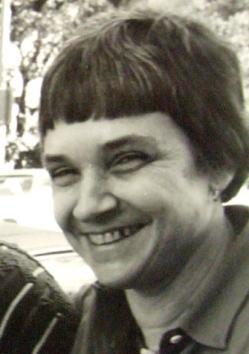In February last year an assignment drifted down to me that I could not believe. I was interning at The Paris Review, fresh out of college, and the Web editor asked me whether I would interview Adrienne Rich, over email, about her new book, Tonight No Poetry Will Serve. The idea of emailing Adrienne Rich didn’t compute. That the mind behind “Twenty-One Love Poems” belonged to a human being was remarkable enough; I imagined the pixels withering before her poetic presence. But I nodded and took the galley copy, because one of the many things I loved about Rich’s lines was their sense of calm, otherworldly purpose. Her work called on you to do the unexpected.
Rich, who died yesterday at 82, once said of Tonight No Poetry Will Serve that “I believe almost everything I know, have come to understand, is somewhere in this book.” Upon opening it I realized that I would need at least a lifetime to tease out half the knowledge stored in its pages. I remember feeling both thrilled and utterly lost when I read the first poem’s first stanza:
Burn me some music Send my roots rain I’m swept
dry from inside Hard winds rack my core
The verse went on to describe “the war / poetry wages against itself,” which seemed an apt way of getting at the urgent, conflicted voices Rich marshaled so well. Her fugue-like poems were passionate and strong, but they had a sense of stillness at their center—an eye within the hurricane. I recognized in that eye (or I) the brave adventuress from “Diving into the Wreck,” who searched in a trance for her true self on the ocean floor.
“I’m attaching some questions,” I wrote her, “but please feel free to discuss whatever you’d like.”
After a few days, I received a reply. In the most gracious way possible, Rich explained that she had no idea what I’d sent to her inbox. I needed to put both my email message and the interview queries into size 36 Cambria bold font, because her eyesight was fading. “I’m looking forward to an unusually interesting conversation,” she added. (No pressure.)
Oh well. I reformatted and resent, fingers crossed. This time, the document I got back was a breathtaking collection of mini-manifestos on social and poetic responsibility. The multiple personae in Tonight were seeking, above all, a “shared moral reality,” she told me. They tried “not to settle for shallow formulas or lazy nihilism or stifling self-reference.” Moreover, this woman who refused both a National Medal for the Arts (to protest the White House’s “cynical policies”) and a National Book Award (because she shunned its terms of “patriarchal competition”) truly lived her beliefs. When she spoke of the writer’s obligation “not to fake it, not to practice a false innocence, not pull the shades down on what’s happening next door or across town,” you could feel her earnestly worrying an ancient distinction between art and activism, song and life.
As for death, Rich once wrote:
I have always wondered about the left-over
energy, the way water goes rushing down a hill
long after the rains have stopped.
Water for her was the visionary element, a medium in which words and knowledge got loosened up and swam around. An unchecked stream seems like the perfect metaphor for the way Rich’s poetry will survive her. I hope a new generation of readers won’t hesitate to dive in.
